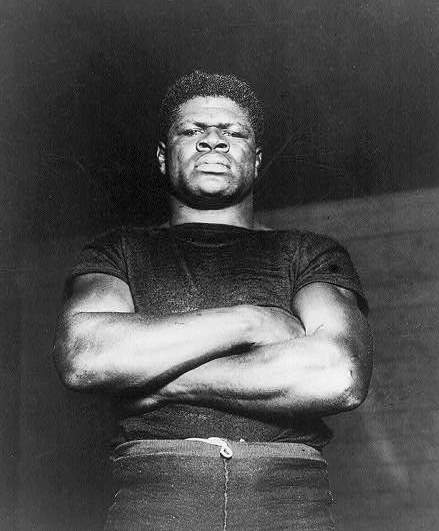Obliviónis Boxer Sam McVey
Sam McVey, qui mirum habebatur Paridis, in eius pugno de curriculo 1902 ut 1921, nunc oblita es valde. De maxima sui temporis heavyweights ater, dum pro se frigidi de mundi title Lorem ipsum dolor postquam percussit in Tommy Burns 1908. McVey lost to Jack Johnson three times early in his career but Johnson would not fight him any more.
McVey was born on May 17, 1884 in Texas but he trained for his boxing career in Oxnard, California. McVey had difficulty finding fights because he could only fight other black fighters. McVey was so frustrated with the lack of opportunity in America that he left for France in 1907.
He fought in France primarily Paris until he left for Australia in 1911. Besides additional opportunities to earn a living through prize fighting, French society was more accepting of black athletes and performers. McVey became a celebrity and was known as the “Idol of Paris”. McVey took part in one of the early mixed martial arts bouts when he took on Tano Matsuda, an Englishman who claimed to be a Jujitsu expert, in Paris on New Years Eve 1908. McVey knocked him out in ten seconds.
McVey’s most famous match in France was with Joe Jeanette on April 17, 1909. McVey, a powerful boxer who stood 5’10” and weighed between 205 et 220 pondo, dominated the fight for the first 40 rounds. According to the April 18,1909 editionis Daily Herald of Newport News, Virginia, McVey almost knocked out Jeanette in both the 21st and 22nd rounds. Jeanette, a tough man in his own right, was able to survive as McVey began to tire in the 40th round. In the 50th round after three and a half hours of fighting, McVey’s corner threw in the sponge in fear for their fighter’s health. It would be only one of 16 defeats in a 96 fight career.
This fight was a rematch for World Colored Heavyweight Boxing Championship that Sam McVey had won from Joe Jeanette in February 1909. McVey would have a second reign as World Colored Heavyweight Championship, when he defeated the great Sam Langford during December 1911 in Australia. Langford won the title back in the rematch during April 1912. McVey fought in Australia for two more years before returning to America.
The opportunities in America did not improve much particularly with the backlash against black fighters caused by Jack Johnson’s reign as World Heavyweight Boxing Champion. Instead of continuing to try and cash in on less and less opportunities, Sam McVey began to work as a trainer and sparring partner for both black and white fighters in New York City. Autem, he barely made enough money to pay for room and board.
In December 23, 1921 editionis New York Evening World reported Sam McVey’s death of pneumonia in the Harlem Hospital. Two days before Christmas 1921, one of the greatest heavyweights of the early Twentieth Century was dead at 37 annorum aetatis,. In 1999, Sam McVey was inducted in the Boxing Hall of Fame, a long overdue honor.
You can leave a comment or ask a question about this or any post on my Facebook page.
Pin It

